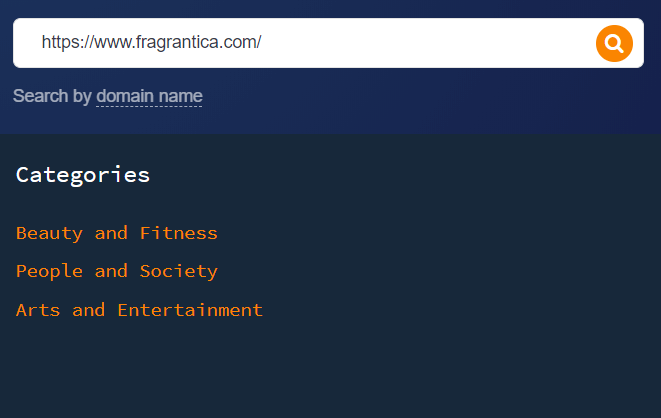What are the benefits of web filtering for businesses?

Content filtering is the practice of restricting access to a broad category of content or specific websites based on their purpose. There are many reasons why companies use content filtering - from boosting cybersecurity to dealing with workplace productivity.
One of the most important prerequisites to efficient content filtering is being able to properly classify domains and websites that are malicious or inappropriate. This is not an easy task, so you have to be rigorous when deciding which tool to use for content filtering.
In this article, we’ll talk about all the benefits of content filtering and the multifaceted tools you need for this.
Content filtering is a multi-pronged approach to every aspect of your business security. If you think that only large, multinational companies have to worry about getting their data stolen or websites hacked, here’s a wake-up call.
Almost half of the online attacks nowadays are aimed at small businesses, but only 14% of them are prepared to protect their websites and data. Moreover, the average cost of security breaches is $200,000. Almost two-thirds of companies never recover and go out of business within six months following the attack.
It’s clear that preventing attacks is a wiser choice than dealing with them - and this is where content filtering steps into the game. Content filtering allows you to fully control what kind of information enters your business network and what kind of information can leave it. Let’s take a quick look at some of the benefits of content filtering.
Network Protection
The first line of defense for any business is protecting their network. This includes the entire system that allows one business to function. Of course, while educating the employees is the first logical step in cybersecurity, you also need an extra helping hand from cybersecurity software. Classical antivirus protection fends off some of the well-established threats, but solid content filtering tools allow you to deal with more sophisticated malware in the form of exploit kits that target vulnerabilities in widely used web browsers, plugins, and apps. By blocking access to sites and apps that harbor these exploit kits, you steer clear from danger.
Phishing Attacks Prevention
Phishing is a special form of sophisticated cyberattacks. It gained notoriety for tricking users into willingly giving up their confidential information, thinking they are dealing with a familiar, credible source. Most often, phishing attacks happen via email, usually in the form of links that lead to pages that mimic the appearance of credible sites and require login credentials. With content filtering, you can fully control which emails reach your servers and block any malicious content.
Company Liability and Productivity
By specifying what type of content your employees can access during working hours, you can also boost their productivity. Social media, streaming services, video platforms, and other entertainment sites can easily chip away hours and hours that could otherwise be spent more wisely. Content filtering allows you to remove this temptation and simply let everyone focus on work. The most commonly restricted sites include social media, inappropriate sites, illegal sites, etc.
By blocking access to illegal and inappropriate content and software, you can make sure your business network is used for its intended purposes. This will allow you to steer clear of illegal and problematic situations that could hurt your legal standing or reputation.
Finally, content filtering can also positively affect your bandwidth, by removing some of the notorious cloggers such as video platforms and streaming sites.
How website categorization wins at filtering content
We mentioned we were going to talk about the best content filtering tools. There are plenty of free and paid content filters you can find with a simple Google search, but if you want something that truly delivers all the benefits we mentioned, try website categorization.
The problem with most content filtering tools comes down to two weaknesses - a small database and limited scanning capabilities. Any content-filtering software, unless specifically told which sites to block, will block the entire categories of content.
If its scanning capabilities are poor, it will either let the dangerous content through, or it will end up blocking perfectly safe work-related content. Finally, if a content filtering software has a poor database of malicious and dangerous sites, it will not block hazardous content from newly-established domains. Since it relies on the existing lists of dangerous sites, new forms of malware or malicious domains still aren’t listed - meaning that someone will have to suffer a cyberattack before the databases catch on to it.
Website Categorization API by WhoisXML API, on the other hand, has a database with over 23.8B+ historic records and 1.2 billion domains and subdomains. Over the past ten years, this cyberintelligence giant has crafted multiple cybersecurity tools aimed at specific needs of online businesses. Website categorization is one of its most versatile products.
Apart from relying on the rich database, this API tool boasts the most advanced, cutting edge scanning capabilities. By using advanced machine learning, Website Categorization API captures website content and meta tags, analyzes content and keywords, and classifies domains based on natural language processing. Sounds complicated? Well, while the science behind website categorization API certainly is quite so, its end result is refreshingly simple.
This API learns from its past experiences - it memorizes the ways in which malicious content, sites, and domains “behave” and it applies this “experience” to recognize dangerous domains. Since it relies on natural language processing, website categorization scans these websites in the same way a studious human-being would. This means it can differentiate well between approved and blocked content. For example, a poor content filtering service can block an online store because the images of models in bikinis could be mistaken for inappropriate content. With website categorization, you won’t have this issue.
Website categorization classifies domains into 1 to 3 out of 25 available categories. This means you don’t have to stick to one broad category when you’re filtering content. You can easily block specific combinations of categories according to your business’ needs and preferences.
Now, let’s give it a try - all you have to do is click here, enter the domain name you want to categorize, and the tool will do its magic! For example, here’s website categorization for a website known for its database of fragrances and forums dedicated to fragrance enthusiasts.

You can do this with any site for free, but if you want to enjoy the perks of 24/7 real-time content filtering, sign up here and get 100 free API requests.
Over time, you’ll be able to scale the number of requests your business needs. You will also discover other perks of website categorization, which include brand protection, contextual targeting, lead generation, and many other amazing functions.



































